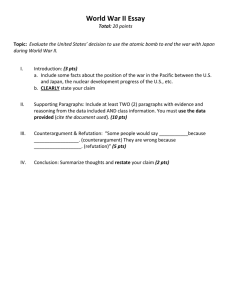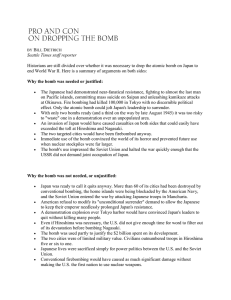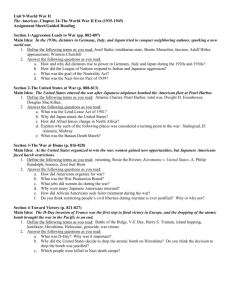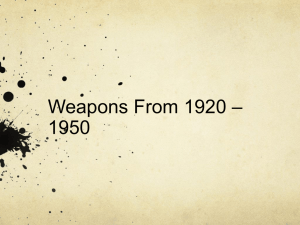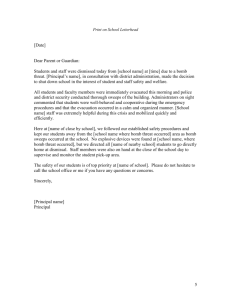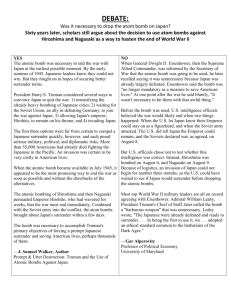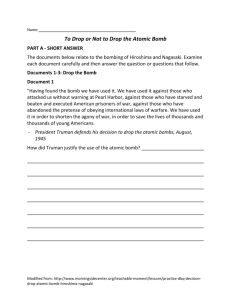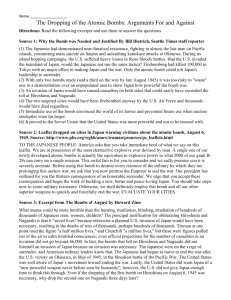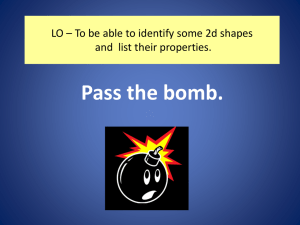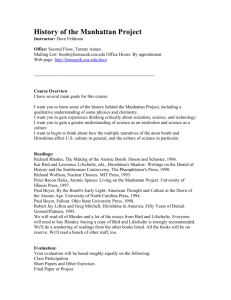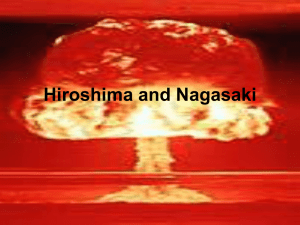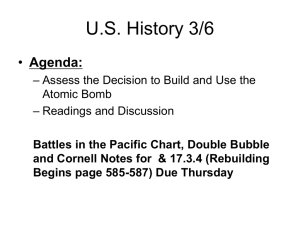Debating the Bomb Discussion
advertisement
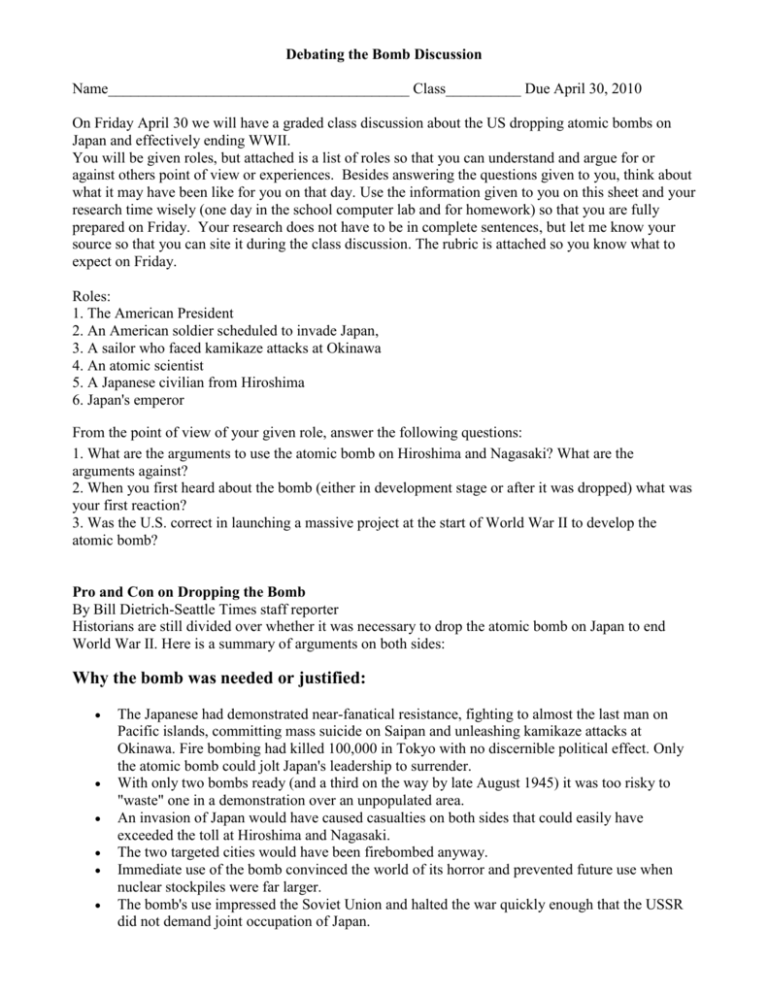
Debating the Bomb Discussion Name________________________________________ Class__________ Due April 30, 2010 On Friday April 30 we will have a graded class discussion about the US dropping atomic bombs on Japan and effectively ending WWII. You will be given roles, but attached is a list of roles so that you can understand and argue for or against others point of view or experiences. Besides answering the questions given to you, think about what it may have been like for you on that day. Use the information given to you on this sheet and your research time wisely (one day in the school computer lab and for homework) so that you are fully prepared on Friday. Your research does not have to be in complete sentences, but let me know your source so that you can site it during the class discussion. The rubric is attached so you know what to expect on Friday. Roles: 1. The American President 2. An American soldier scheduled to invade Japan, 3. A sailor who faced kamikaze attacks at Okinawa 4. An atomic scientist 5. A Japanese civilian from Hiroshima 6. Japan's emperor From the point of view of your given role, answer the following questions: 1. What are the arguments to use the atomic bomb on Hiroshima and Nagasaki? What are the arguments against? 2. When you first heard about the bomb (either in development stage or after it was dropped) what was your first reaction? 3. Was the U.S. correct in launching a massive project at the start of World War II to develop the atomic bomb? Pro and Con on Dropping the Bomb By Bill Dietrich-Seattle Times staff reporter Historians are still divided over whether it was necessary to drop the atomic bomb on Japan to end World War II. Here is a summary of arguments on both sides: Why the bomb was needed or justified: The Japanese had demonstrated near-fanatical resistance, fighting to almost the last man on Pacific islands, committing mass suicide on Saipan and unleashing kamikaze attacks at Okinawa. Fire bombing had killed 100,000 in Tokyo with no discernible political effect. Only the atomic bomb could jolt Japan's leadership to surrender. With only two bombs ready (and a third on the way by late August 1945) it was too risky to "waste" one in a demonstration over an unpopulated area. An invasion of Japan would have caused casualties on both sides that could easily have exceeded the toll at Hiroshima and Nagasaki. The two targeted cities would have been firebombed anyway. Immediate use of the bomb convinced the world of its horror and prevented future use when nuclear stockpiles were far larger. The bomb's use impressed the Soviet Union and halted the war quickly enough that the USSR did not demand joint occupation of Japan. Why the bomb was not needed, or unjustified: Japan was ready to call it quits anyway. More than 60 of its cities had been destroyed by conventional bombing, the home islands were being blockaded by the American Navy, and the Soviet Union entered the war by attacking Japanese troops in Manchuria. American refusal to modify its "unconditional surrender" demand to allow the Japanese to keep their emperor needlessly prolonged Japan's resistance. A demonstration explosion over Tokyo harbor would have convinced Japan's leaders to quit without killing many people. Even if Hiroshima was necessary, the U.S. did not give enough time for word to filter out of its devastation before bombing Nagasaki. The bomb was used partly to justify the $2 billion spent on its development. The two cities were of limited military value. Civilians outnumbered troops in Hiroshima five or six to one. Japanese lives were sacrificed simply for power politics between the U.S. and the Soviet Union. Conventional firebombing would have caused as much significant damage without making the U.S. the first nation to use nuclear weapons. Debating the Bomb: Participation Rubric 50 pts 45 pts 35 pts 30 pts 0 pts Student fully participates in seminar/debate by making a constructive comment that is fully supported by textual evidence and fully explained. Advances discussion. Participates in the seminar/debate by making a constructive comment that is fully explained but that is not supported by textual evidence. Participates in the seminar but does not make a constructive comment. Student actively listens and takes note. Maximum grade possible for any student who meets any of the above requirements but who does not have written preparation (Position Paper) for the seminar/debate. Student makes an inappropriate comment or otherwise distracts the seminar/debate
